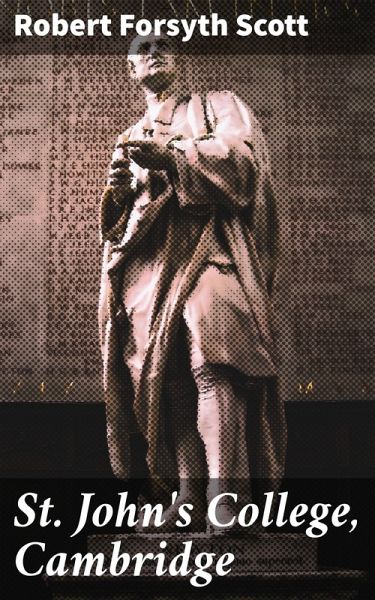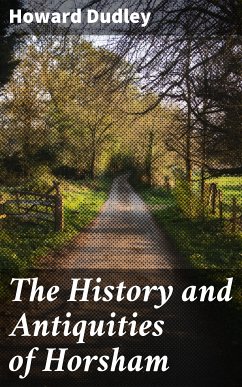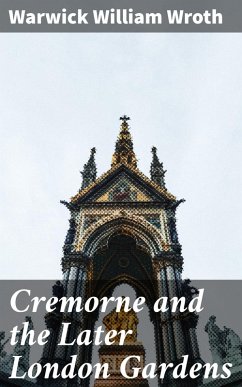
St. John's College, Cambridge (eBook, ePUB)
An Exploration of Cambridge's Scholarly Past and Literary Legacy

PAYBACK Punkte
0 °P sammeln!
In "St. John's College, Cambridge," Robert Forsyth Scott delivers a meticulously crafted exploration of one of the most venerable institutions of higher learning in the United Kingdom. The book is characterized by its erudite prose and an analytical approach that intertwines the college's rich history with its architectural evolution and the intellectual legacy of its alumni. Set against the backdrop of Cambridge'Äôs storied academic tradition, Scott examines the societal contributions of St. John's College while posing critical reflections on the interplay between education and cultural dev...
In "St. John's College, Cambridge," Robert Forsyth Scott delivers a meticulously crafted exploration of one of the most venerable institutions of higher learning in the United Kingdom. The book is characterized by its erudite prose and an analytical approach that intertwines the college's rich history with its architectural evolution and the intellectual legacy of its alumni. Set against the backdrop of Cambridge'Äôs storied academic tradition, Scott examines the societal contributions of St. John's College while posing critical reflections on the interplay between education and cultural developments during pivotal historical eras. Robert Forsyth Scott, an esteemed scholar in the field of higher education history, brings a unique perspective to this work, informed by both his academic background and personal experiences within the Cambridge educational system. His extensive research and familiarity with the ethos of St. John's College allow him to present a nuanced understanding of its significance. Scott's passion for education and history is evident as he thoughtfully narrates the transformative impact of the college on various fields, from the sciences to the arts. This book is indispensable for anyone interested in the historical foundations of academic excellence and cultural development at one of the world's leading universities. With its rich insights and engaging narrative, "St. John's College, Cambridge" invites readers to appreciate the profound influences of education and intellect that have shaped contemporary thought.
Dieser Download kann aus rechtlichen Gründen nur mit Rechnungsadresse in A, B, BG, CY, CZ, D, DK, EW, E, FIN, F, GR, H, IRL, I, LT, L, LR, M, NL, PL, P, R, S, SLO, SK ausgeliefert werden.













